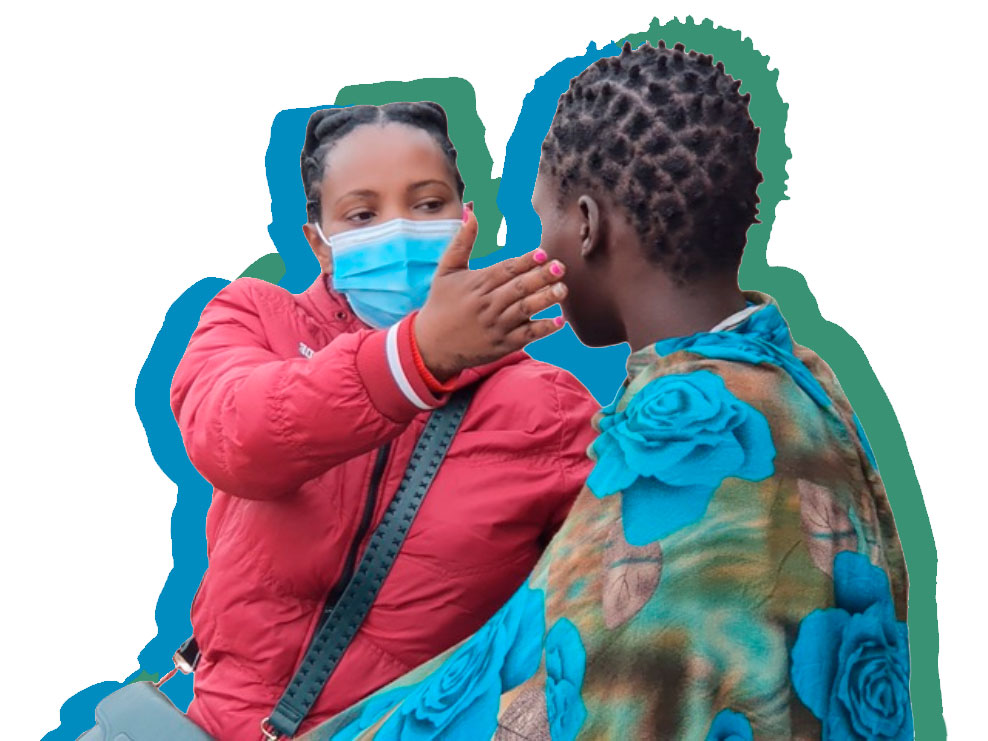The Resilience Fund aims to build community resilience to criminal governance.

Resilience
The capacity to respond to and recover from shocks and stressors that threaten and/or disrupt an actor’s structure and functional capacities.
Community resilience can be identified as a community’s ability to respond to adversity while retaining its functional capacities. It refers to the collective competency of a community to absorb change, transform and seize opportunities to improve conditions. It includes the community’s capacity for concerted actions as well as its ability to solve problems and build consensus towards coordinated responses.
In our area of work, it can be identified as a collective way to transform communities and to positively respond to the impact of organized crime.
In the diverse areas where the Resilience Fund operates, we have seen resilience demonstrated in initiatives of individuals and communities facing the detrimental impact of organized crime. The contexts of such resilience initiatives vary greatly – but there are certain common features: they are rooted in their communities; they promote peaceful responses and reject violence; and they often operate with limited resources.
The specific activities that form part of these initiatives are also varied in nature, and include victim support, prevention campaigns, at-risk youth support, community workshops, the recovery of public spaces, capacity building, network building, advocacy, influencing public policy and interrupting violence through dialogue.
Organized crime
There are many definitions of organized crime to be found – some that emphasize criminal structures, activities or operational capacities – but many of these definitions do not take into account the direct impact organized crime has on society.
Organized crime can be understood in the following context: “An organised crime group attempts to regulate and control the production and distribution of a given commodity or service unlawfully.” This underscores a form of governance where violence is the most crucial resource. Organized crime is commonly defined by “the presence of a rudimentary structure, a system for issuing orders, someone who benefits from such governance, and continuity over time”.
The Resilience Fund operates in many different contexts, but in each case where a community response to organized crime is needed. These contexts include places where – to give some examples – a structured criminal group controls an illicit market (such as drugs or weapons); where a local gang exerts violence and profits from illegal activities; or where there is embedded corruption involving state actors.
The detrimental impact of organized crime is becoming increasingly felt in its capacity to:
• Penetrate and compromise states
• Warp the process of democracy, regulation and the rule of law
• Violently erode the safety, security and life chances of communities
• Degrade the environment
Today, there are a growing number of places around the world where the state has been compromised or replaced by criminal governance, both in remote communities and in the heart of urban metropoles.
Criminal governance
Criminal governance refers to the control by a criminal group over a territory or community, where it exercises a quasi-governmental role, assuming power where the state cannot or will not assume the monopoly of the use of force.
Criminal governance occurs when criminal organizations take advantage of their intimidating power, and of submission, fear or silence, to exercise control over a community. Through such control, criminal groups ‘govern others by providing criminal protection to both the underworld and the upper world’ by engaging in illegal markets, the provision of illegal goods and services, and, in some cases, in political activities.
Criminal governance has a certain protective and regulatory function among criminals and commonly functions to the detriment of the communities where such power is exercised.
It does not manifest itself in the same form in all parts of the world, but common characteristics tend to be found:
• The use and threat of violence
• The targeting of women, girls and young people in general
• Efforts to control economic activity and resources
• Influence over political and judicial recourse for ordinary citizens
One of the principal challenges of responding to organized crime is the capacity of criminal groups to target and capture those very agents of the state whose mandate it is to prevent and prosecute their operations. Civil society and non-state actors have therefore become critical protagonists in the fight against organized crime, and they also play a role as protectors of the vulnerable in the absence of an effective state response.
As a result, civil-society institutions and courageous change agents find themselves at great risk, working in dangerous environments and targeted by criminal groups. Furthermore, nascent community and civil-society efforts to mount a response are often constrained by limited resources and other obstacles.
Civil-society actors
Civil society can be understood as civilian organizations of many different types and structures but is collectively understood as including actors outside the spheres of government and the private sector. Civil-society organizations may be local or international in reach, but what they have in common is that their mission is to respond to a challenge, to seek state action, lobby for a cause, provide support to communities, or simply raise awareness.
The focus of the Resilience Fund is grassroots organisations, local civil-society initiatives and individuals who respond to the challenges of organized crime.
Civil society is active in multiple ways and under different institutional guises, everywhere in the world where organized crime is now present. The Resilience Fund works with:
• Community-based organizations
• Local NGOs
• Non-profit foundations
• Research institutes or academia
• Media houses
• Labour unions
• Women and youth collectives
• Faith-based organizations
• Community leaders
• Human-rights groups
• Grassroots cooperatives
Their initiatives are targeted at the specific demands of their local context, but they also often share commonalities, seeking to uncover criminality and corruption; organizing community resistance and community protection; agitating to have their voices heard on a larger national or international platform; or more generally issuing calls to attention, action and assistance.
